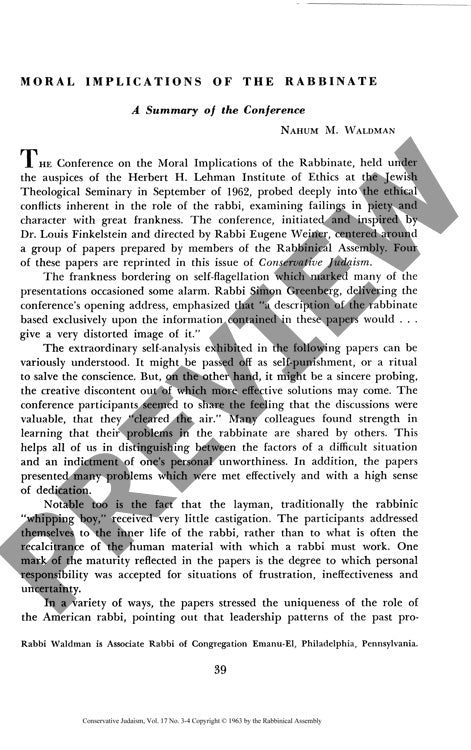Moral Implications of the Rabbinate a Su
Couldn't load pickup availability
Modern American rabbis face unprecedented ethical challenges that ancient halakhic precedent never anticipated, forcing reliance on broader Aggadic principles for moral guidance. In 1962, the Jewish Theological Seminary's Herbert H. Lehman Institute of Ethics convened a landmark conference to examine these emerging dilemmas through frank self-analysis by Conservative rabbis. Under the direction of Rabbi Eugene Weiner and initiated by Dr. Louis Finkelstein, members of the Rabbinical Assembly prepared papers exploring core tensions in contemporary rabbinical practice: ethical conflicts in pastoral counseling, the boundaries of privileged communication, the dual imperatives of prophetic critique and institutional loyalty, and the balance between priestly and prophetic roles. The methodology centered on rabbis' candid examination of professional challenges, revealing persistent struggles between spiritual calling and worldly accommodation, between gradual institutional reform and prophetic demands for radical change, and questions of appropriate engagement with broader social movements. Analysis demonstrated that rabbis must synthesize multiple sacred roles - priest, prophet, and sage - while maintaining spiritual authenticity within modern institutional frameworks. This unprecedented self-examination illuminated both the distinct pressures facing American rabbinical leadership and the critical need to anchor moral guidance in renewed Torah study and spiritual discipline.

More Information
-
Physical Description
-
Publication Information
Published 1963
ISBN
-
Publication Credits
Nahum Waldman

